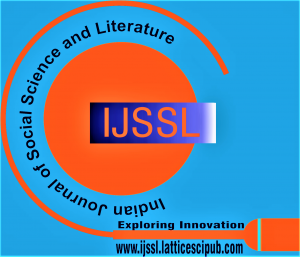![]()
Gendered Vulnerabilities in Disaster Responses: A Case Study of Majuli Island, Assam
Josephine Nongmaithem
Josephine Nongmaithem, Ph.D Scholar, Department of Social Work, Delhi University, New Delhi India.
Manuscript received on 24 February 2024 | Revised Manuscript received on 09 March 2024 | Manuscript Accepted on 15 March 2024 | Manuscript published on 30 March 2024 | PP: 22-27 | Volume-3 Issue-3, March 2024 | Retrieval Number: 100.1/ijssl.C111703030324 | DOI: 10.54105/ijssl.C1117.03030324
Open Access | Ethics and Policies | Cite | Zenodo | OJS | Indexing and Abstracting
© The Authors. Published by Lattice Science Publication (LSP). This is an open-access article under the CC-BY-NC-ND license (http://creativecommons.org/licenses/by-nc-nd/4.0/)
Abstract: This study employs a qualitative research methodology to study the gender disparities in disaster responses, focusing on the case study of Majuli Island in Assam, India, to provide nuanced insights into the distinct vulnerabilities experienced by women, particularly in the context of floods. Through an in-depth exploration of social norms, behavioural restrictions, and resource allocation practices, the research elucidates how women’s roles as caregivers and providers constrain their mobility and exacerbate their susceptibility to harm. The gendered ramifications of disasters on health, encompassing reproductive health issues and malnutrition, are underscored, alongside the psychological and physiological impacts that precipitate enduring mental anguish and heightened risks of violence and abuse. The findings underscore the imperative for gender-sensitive approaches to disaster preparedness, response, and recovery, advocating for comprehensive strategies that foreground women’s safety, wellbeing, and empowerment. By adopting a qualitative research methodology grounded in descriptive investigation, the study delves deeply into the lived experiences of communities facing disaster risks, offering invaluable insights for policymakers, practitioners, and communities seeking to foster inclusive and resilient societies.
Keywords: Disaster Responses, Gender Disparities, Gender-Sensitive Approaches, Majuli Island, Vulnerabilities
Scope of the Article: Women in Literature and Psychology
